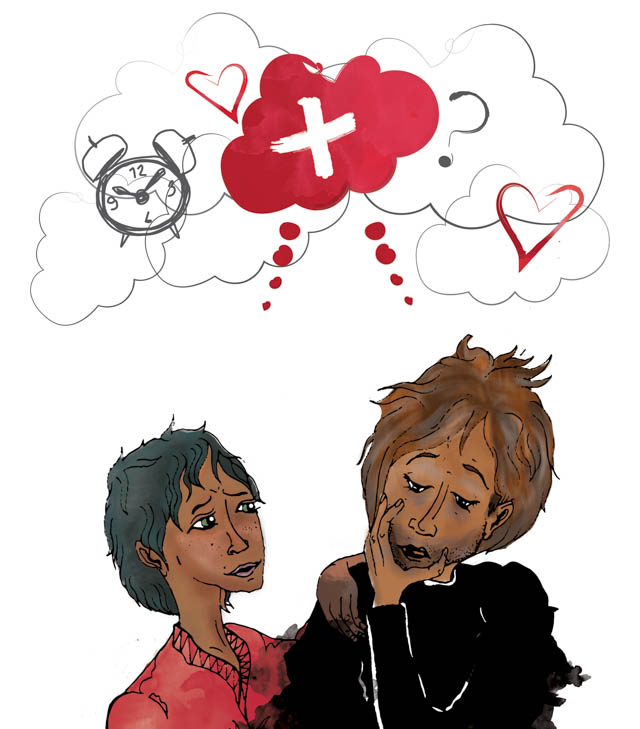Becoming Swiss: a Fun Ride!
Becoming Swiss is far from child’s play, especially when your partner is a foreigner in the country, too. Other than the obvious prerequisites of having a clean criminal record, financially sound background with all dues and taxes paid, insurances in order, etc., you need to be truly integrated both linguistically and socially. And you must reflect that in your behaviour in as many ways as possible; be it by immaculately separating your garbage or greeting your neighbours with Grüezi, etc.
If you really want the Swiss passport with all your heart and for the right reasons, the journey gets easier as you automatically and seamlessly integrate yourself into your society.
But first, back to the basics: If you’ve lived in Switzerland for a period of time (usually 12 years for non-EU and non-Americans, such as yours truly), you can visit your Gemeindehaus (town hall) and express your desire to be Swiss. They will then provide the documents you will need to begin the process.
Be ready to pay at every level for each document and the tests that follow.
Different cantons, different rules
There are other conditions. For one, each canton has a different set of rules. And within the canton, each Gemeinde (town/municipality) has an additional set of independent criteria. So we were in for a rude shock when we were told to wait another four years since our particular Gemeinde needed us to have lived there not for two, but for six years, irrespective of whether or not we had fulfilled the country’s law of having been in Switzerland for 12 years already.
Happily, however, rules change within cantons. So within the next two years (instead of four), we were called to apply for the citizenship! The process described below is not a national standard. The tests are now in the process of being standardised, though.
Study time
Weeks after collating and sending in your documents to the cantonal migration department, the Gemeinde will inform you whether the application and documents have met the prerequisites or if any other information needs to be supplied. Once the formality is complete and everything is in order according to the canton, the Gemeinde will inform you about the once-a-week, six-week-long Gesellschaft (community) lessons that are held at the district headquarters. You can also get your dossier with all the information for self-study, but in my view, the course makes it easier.
In addition to testing your knowledge on Gesellschaft, which is a crash course on themes including history, geography, democracy and federalism, rights and duties, social security and health issues, the work and education system as well as the local religions and holidays, you also have a separate test on language skills. So train well in advance!
The exam
The Gesellschaft examination lasted an hour and 45 minutes with 14 pages of multiple choice and other questions in clearly demarcated sections: country, canton, Gemeinde. It wasn’t a cakewalk. A week hence, I appeared for another long language exam followed by a 30-minute interview in German and Swiss German.
The politicians step in
If all goes well, and you pass all exams with a minimum of 50%, you and your partner will be invited by the Gemeinderat (town council) for a personal interview; they do this to get to know why you want to be Swiss and how integrated you feel. Treat it like an emotional test where your motives, lifestyle, and your “at-home-here” feelings are rated.
The media steps in
Your intent to become Swiss and the recommendations of the eight municipal politicians are then published in the local newspaper, with the announcement that the residents of the areas are now welcome to vote for or against your citizenship at the next Gemeindeversammlung/village meeting.
Voting
On the day of the meeting, it’s best for you and your family to be visible and present, for the residents appreciate seeing you there in person as they raise their hands for or against you. You may be asked to step out of the meeting during the voting process in certain cases. There may be questions or discussions; but the sailing can be smooth.
And once all goes well, you are announced as a citizen of the village, canton and country. Congratulations are in order! Now commences the payment of additional bills and the wait for your call to go in for your biometrics and finally the Swiss passport.
A seemingly long process, I believe it is a good one to ensure integration at the political, social and emotional levels. If you have your heart on the right side and want to make this country “home,” however taxing the process may seem to be, you will feel secure and valued at the end of it.
By Aradhna Sethi
Aradhna is the author of The Entrepreneur’s Wife – A Survival Guide. She has held roles of responsibility as the chief editor and consulting editor and senior consultant features correspondent for English-language publications. Aradhna blogs and writes for various online and print platforms while balancing the demands of growing kids and an entrepreneurial husband. Follow her on aradhnasethi.wordpress.com and on Twitter.
Illustration by Bvisual.
Beth works as special educational needs teacher. She graduated from university after studying visual communication, specialising in illustration, and then went on to do post graduate studies in education. Beth’s been working as a freelance creative alongside her teaching, and has undertaken projects involving portraits and editorial illustrations under her artist’s name BVisual.





I know a family that took different outings to each canton capital during their citizen studies. I thought that was a really great way to see the country and learn about its history